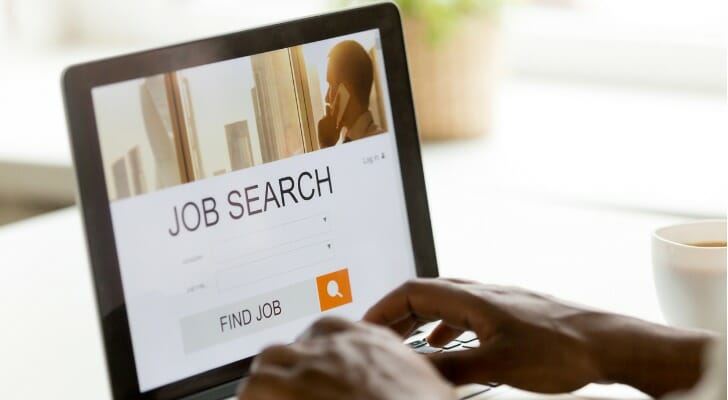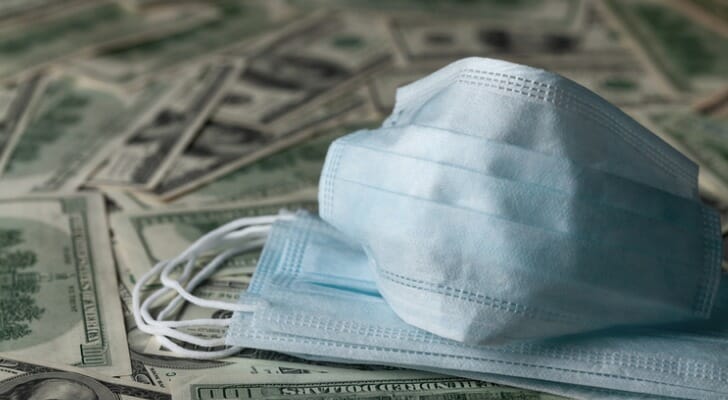The Coronavirus Aid, Relief, and Economic Security (CARES) Act dedicates $2 trillion to helping both individuals and businesses while the U.S. economy is affected by the coronavirus pandemic. Among its provisions are an extended tax deadline, expanded unemployment benefits and stimulus check payments for Americans within certain income thresholds. But wealthy Americans likely won’t qualify for coronavirus stimulus checks, as the CARES Act’s check amounts phase out for individuals with adjusted gross incomes (AGIs) above certain income thresholds. However, high earners have access to a range of other benefits to help them weather the coronavirus crisis.
A financial advisor can help you create a robust financial plan during times of economic uncertainty. Find a financial advisor today.
Do High Earners Qualify for Coronavirus Stimulus Checks?
Individuals, couples and heads of households qualify for a stimulus check if their AGI falls below a certain level. The government will distribute a maximum of $1,200 to individuals and $2,400 to couples. Families will receive an additional $500 per child under the age of 17. These amounts are subject to “phase-outs” based on income levels. In other words, the checks decrease by $5 for every $100 you make above the following thresholds:
- $75,000 for an individual (maxes out at $99,000)
- $150,000 for a married couple (maxes out at $198,000)
- $112,500 for a head of household (maxes out at $136,500)
If you’d like a more details on the layout of the program’s provisions, our coronavirus stimulus check calculator provides an outline of all the rebate amounts and eligible recipients.
Even though high earners won’t be eligible for the stimulus checks, they’ll still have access to other forms of coronavirus crisis government help. We look further into those relief programs below.
Coronavirus Paid Sick Leave
Even if your income falls outside of the AGI limit for stimulus checks, you can still earn weekly income if you become ill due to COVID-19, or if you’re in coronavirus quarantine. The Families First Coronavirus Response Act (FFCRA), an expansion upon the Family and Medical Leave Act (FMLA), grants eligible employees up to two weeks (80 hours) of paid sick time at their regular rate of pay if they meet either of the prior conditions. If you have to care for a child or individual impacted by COVID-19, you’ll get two weeks of paid sick time at two-thirds your rate of regular pay.
And regardless of your income level, the FFCRA also provides family leave benefits for eligible employees who need to care for a child affected by coronavirus. The bill provides 10 additional weeks of family leave at two-thirds the rate of the employee’s regular pay rate.
Coronavirus Unemployment Benefits

The CARES Act provides enhanced unemployment benefits for Americans temporarily out of work because of coronavirus. Among its key programs are the Pandemic Unemployment Compensation (PUC), Pandemic Emergency Unemployment Compensation and Pandemic Unemployment Assistance (PUA) programs.
The PUC program provides a flat amount of $600 to regular unemployment insurance recipients, employees receiving partial unemployment benefit checks and PUA recipients. The PEUC program grants eligible individuals an additional 13 weeks of benefits. However, they can only receive this after they exhaust their state’s unemployment benefits. Finally, the PUA program offers up to 39 weeks of emergency unemployment assistance to workers who’ve exhausted their state benefits.
Coronavirus Rent & Mortgage Relief
The government also gives Americans access to coronavirus relief for rent and mortgage payments. High earners may also be eligible for federal mortgage relief if they lose their job because of coronavirus. The CARES Act offers such homeowners the choice to request forbearance for up to 180 days. They can also request an additional 180 days if needed.
To be eligible, your loan must be backed by one of the following agencies or entities: Fannie Mae, Freddie Mac, the U.S. Department of Housing and Urban Development (HUD), the Federal Housing Administration (FHA loans) or the U.S. Department of Veteran Affairs (VA loans).
Bottom Line

If you’re a high earner, you probably won’t qualify for the CARES Act stimulus checks. But you’ll still have access to federal aid such as tax relief, unemployment insurance, coronavirus sick leave and various other forms of aid. The type of relief you’re eligible for will often depend on a number of factors. The most important are your employment status and whether you or someone close to you has been impacted by COVID-19.
Tips for Managing Your Assets During the Coronavirus Crisis
- A financial advisor can help you prepare for a recession and build a long-term financial plan. SmartAsset’s free tool makes your search easier, as it matches you with up to three local advisors. Based on your answers to a short questionnaire, you’ll automatically pair with suitable advisors. Start your search now.
- The CARES Act also includes student loan relief and a tax deadline extension. To see whether it’s feasible to take advantage, consider our guide on student loan relief programs.
- Saving is essential to financial longevity, not just in times of economic crisis. Whether you’re consistently budgeting, or simply setting aside a few dollars every day, it’s crucial to prepare for retirement before you reach retirement age. Our retirement calculator can help.
Photo credit: ©iStock.com/MarioGuti, ©iStock.com/fizkes, ©iStock.com/Julia_Sudnitskaya
